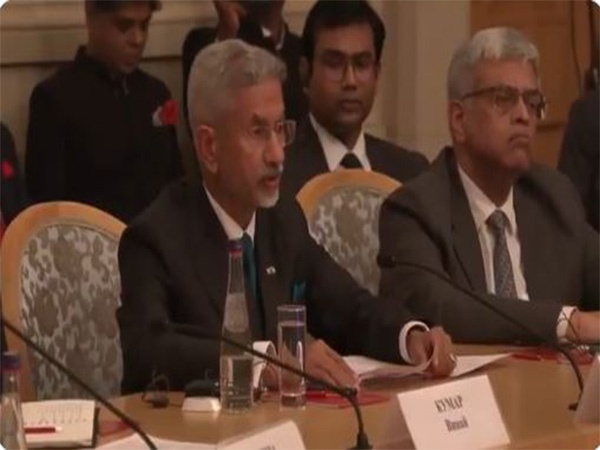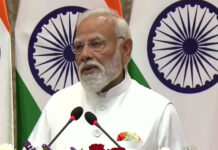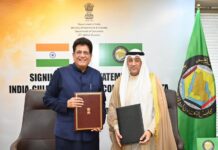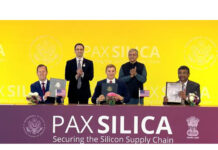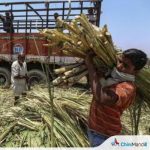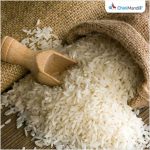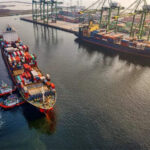Moscow [Russia]: External Affairs Minister S Jaishankar on Wednesday focused on removing tariff and non-tariff trade barriers, improving logistics, and promoting connectivity through major corridors like the International North-South Transport Corridor and the Chennai-Vladivostok Corridor.
He said that streamlining payment mechanisms and finalising the Programme of Economic Cooperation till 2030 are also key priorities, adding that India and the Eurasian Economic Union are working towards an early conclusion of the Free Trade Agreement, with terms of reference finalised during the session.
Addressing the India-Russia Inter-Governmental Commission on Trade, Economic, Scientific, Technological and Cultural Cooperation (IRIGC-TEC) in Moscow, Jaishankar said, “Allow me to lay out some of the salient features of the agenda before us. Addressing tariff and non-tariff trade barriers, removing bottlenecks in logistics, promoting connectivity through the International North-South Transport Corridor, the Northern Sea Route and the Chennai-Vladivostok Corridor, effecting payment mechanisms smoothly, timely finalization and execution of the Programme of Economic Cooperation till 2030, the early conclusion of the India-Eurasian Economic Union FTA, whose terms of reference were finalised today, and regular interaction between the businesses of the two countries – these are among the key elements.”
“They will not only help to address the imbalance and grow our trade, but also hasten the timely achievement of our revised trade target of USD 100 billion by 2030,” added Jaishankar.
India and Russia have made significant strides in strengthening their economic ties, with bilateral trade reaching a record high of USD 68 billion in 2024-25. However, a substantial trade imbalance of USD 58.9 billion has accompanied this growth, prompting Jaishankar to call for urgent action to address the issue.
Jaishankar emphasised the need to bridge the trade gap, which has grown ninefold in four years, and proposed measures to boost Indian exports and diversify trade.
“Over the last four years, our bilateral trade in goods has increased, as you have noted, more than five-fold from USD 13 billion in 2021 to USD 68 billion in 2024-25 and it continues to grow. However, a major trade imbalance has accompanied the growth; it has increased from USD 6.6 billion to USD 58.9 billion which is about nine times. So we need to address that urgently,” said Jaishankar.
Jaishankar suggested that Working Groups and Sub-Groups adopt a more creative and innovative approach to their agendas, focusing on areas like smoother settlements, better logistics, and joint ventures, adding that IRIGC-TEC will allow to improve efficiency and rise to the occasion of deepening our economic cooperation.
“The various Working Groups and Sub Groups could perhaps take a more creative and innovative approach towards their respective agendas. The challenges posed by the larger landscape that I mentioned require us to do so. And this should be done in a manner in which it works for both sides. So, when we speak today as you did, Excellency, of the smoothness of settlements, of better logistics, of diversifying our trade basket, of creating more joint ventures, of moving on skilling and mobility, these are some of the areas, some examples what we need to focus on more effectively,” said Jaishankar.
He said that continuously expanding the agenda through mutual consultation will help tap into the full potential of trade and investment ties. “We should continuously diversify and expand our agenda through mutual consultation. This will help us to tap into full potential of our trade and investment ties. We should not get stuck on a beaten track. Doing more and doing differently should be our mantras.”
Jaishankar also underlined the importance of setting specific targets and timelines, which will enable both sides to challenge themselves and achieve more.
“I would urge that we set ourselves some quantifiable targets and specific timelines so that we challenge ourselves to achieve more, perhaps even surpass what we set out to do. Each Working Group and each Sub Group could apply itself to setting of targets and see what we could achieve by the next session of the IRIGC-TEC. For example, if you are looking at Trade Barriers, could we pick a certain number and make a commitment? If we have agreed to a certain proposal, can we set a firm timeline for that? So, I believe that each Working Group and Sub Group should include at least one possible target and pursue it with full tenacity,” said Jaishankar.
He proposed at least two inter-sessional meetings between IRIGC sessions, including a virtual midterm review.
“I would suggest for your consideration, that we should have at least two inter-sessional meetings between the IRIGC Sessions. We could also do a virtual midterm review with all the Co-Chairs like we did in 2023. It will certainly help us to take corrective measures and come up with adjustments which are required. To make that happen, I think it would also be useful if each one of us designate a clearing house for the IRIGC-TEC on both sides who would remain in touch,” said Jaishankar.
He suggested that establishing a coordination mechanism between the Business Forum and Working Groups would facilitate a two-way flow of information between policymakers and the business community.
“I would suggest for your consideration that we could have a coordination mechanism between the Business Forum and the different Working Groups of the IRIGC, so that there is a two-way flow between people in the business world and people in the policy world. We will like the IRIGC to become even more result-oriented, relevant and readily available to the business communities of the two sides,” said Jaishankar.
He further stated that IRIGC is a crucial mechanism for preparing the Annual Summit (anticipated to take place at the end of this year). “Indeed, it’s our work and the deliverables that truly foster the relationship between India and Russia,” added Jaishankar.
(With inputs from ANI)

